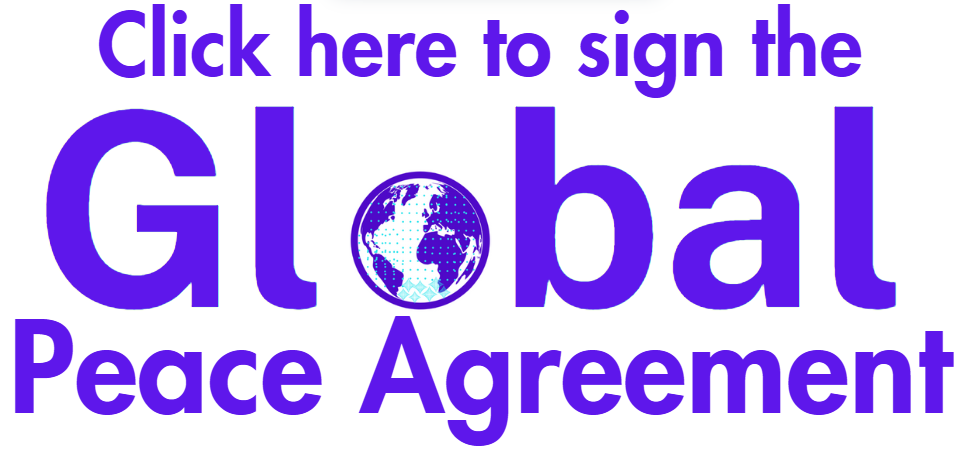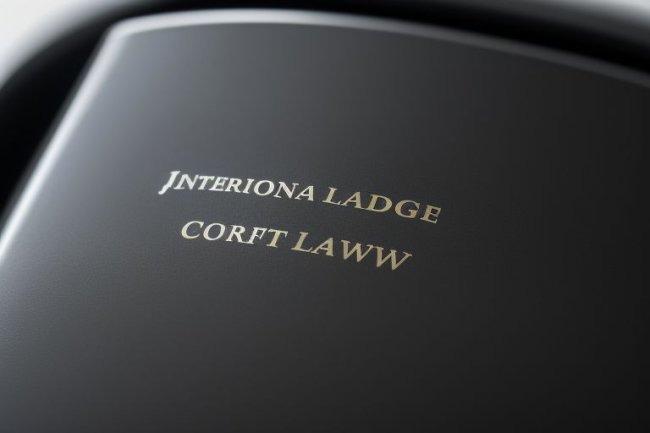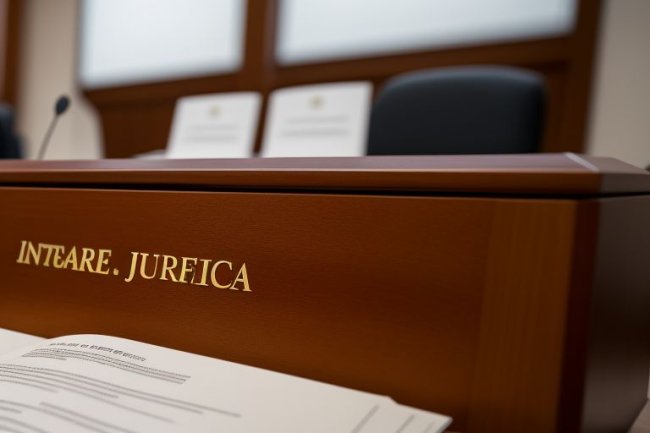The Role of Courts in Conflict Resolution
In the wake of the catastrophic Second World War, the international community grappled with the harrowing realization that existing conflict resolution and peacekeeping mechanisms had proven inadequate. The failure of the League of Nations to prevent the outbreak of war necessitated a reimagining of global governance to ensure that such a devastating conflagration would never recur. In response, the United Nations (UN) was born with the ambitious mandate to safeguard world peace and promote international cooperation.

The International Court of Justice (ICJ), which was formed as the UN's primary judicial body, is a crucial part of the organization of the UN. The Permanent Court of International Justice of the defunct League of Nations gave birth to the International Court of Justice (ICJ), which was intended to serve as an impartial arbiter in settling disputes between governments, provide a channel for amicable resolution, and forestall the outbreak of armed war.
The foundational principles of the International Court of Justice are enshrined in the United Nations Charter, making it a vital component of the global framework for conflict resolution. By virtue of the Charter, all UN member states are automatic signatories to the ICJ Statute, acknowledging its authority as a forum for resolving disputes peacefully. The Court's mandate, therefore, lies in adjudicating matters arising between states, facilitating dialogue, and offering legal interpretations to promote a rules-based international order.
However, while establishing the ICJ represented a significant step forward in pursuing global peace, its effectiveness has not been without limitations and challenges. One fundamental constraint lies in the voluntary nature of its jurisdiction; the Court's authority to resolve disputes between states is contingent on the parties' consent. Consequently, not all disputes between nations are brought before the ICJ for adjudication, potentially leaving significant conflicts unresolved.
Furthermore, the political dynamics within the United Nations Security Council have sometimes overshadowed the Court's impartiality and effectiveness in conflict resolution. The Council's five permanent members, armed with the power of the veto, hold considerable sway over international affairs, sometimes influencing the outcome of cases brought before the ICJ. This politicization of international law has raised concerns about the Court's ability to remain a truly neutral and independent judge.
According to this paper, resolving these concerns is critical to strengthening the role of courts, especially the International Court of Justice, in the pursuit of global peace. It is nevertheless of utmost importance to preserve the Court's impartiality while carefully juggling permissive participation and compelling jurisdiction. To develop a comprehensive and effective strategy for resolving conflicts, other peaceful dispute resolution techniques such as mediation, conciliation, and arbitration should be considered alongside litigation.
In light of the complex and ever-evolving nature of global challenges, the role of courts in conflict resolution demands constant scrutiny and adaptation. As we delve into the intricacies of the International Court of Justice's operation, we must remain cognizant of the broader context in which it operates—the pursuit of lasting peace and the advancement of international justice. Only through a holistic understanding of the Court's strengths, limitations, and potential for improvement can we pave the way for a more secure and harmonious world, where conflicts are resolved peacefully and the horrors of war relegated to the annals of history.
The Evolution And Effectiveness Of International Courts
The evolution and effectiveness of international courts in conflict resolution have been remarkable, contributing to preventing wars and fostering a culture of global peace. The origins of international courts can be traced back to ancient civilizations, where arbitrators and mediators were employed to settle disputes between states. However, it was not until the 20th century that the modern concept of international courts began to take shape.
Establishing the Permanent Court of International Justice (PCIJ) in 1920 under the League of Nations marked a pivotal moment in the evolution of international judicial mechanisms. Despite its limitations and eventual demise with the League of Nations, the PCIJ laid the groundwork for the creation of its successor, the International Court of Justice (ICJ).
Established in 1945 under the United Nations, the ICJ emerged as the UN's principal judicial organ, inheriting the PCIJ's legacy. Tasked with adjudicating legal disputes between states and providing advisory opinions on legal matters, the ICJ became a cornerstone of the UN's mission to promote peace, security, and human rights on a global scale.
The effectiveness of international courts in conflict resolution stems from their crucial roles:
1. Providing a Forum for Dispute Resolution:
International courts offer a neutral platform for states to resolve their disputes peacefully. By providing a legal arena for parties to present their arguments, the ICJ and other international courts facilitate dialogue and negotiation, reducing the likelihood of resorting to armed conflict. The binding nature of the courts' decisions encourages states to seek diplomatic solutions, reinforcing the significance of peaceful coexistence.
2. Upholding the Rule of Law:
International courts play a critical role in upholding the rule of law at the global level. Through their decisions and interpretations of international law, these courts establish precedents that guide states in their conduct and interactions. By setting clear legal boundaries and norms, international courts deter states from engaging in aggressive behavior and provide a framework for resolving disputes based on established legal principles.
3. Promoting Peaceful Settlements:
International courts promote peaceful settlements by offering alternative avenues for resolving disputes. Parties to a conflict can seek legal recourse instead of resorting to military force, thereby avoiding the immense human suffering and destruction associated with armed conflicts. The existence of a judicial mechanism empowers states to address grievances through legal means, fostering a culture of peaceful resolution.
4. Enhancing Diplomatic Relations:
The involvement of international courts in conflict resolution can strengthen diplomatic relations between states. The voluntary submission to the court's jurisdiction demonstrates the parties' commitment to seeking a peaceful resolution. Engaging in the legal process can also facilitate communication and understanding between parties, improving relations and greater prospects for long-term peace.
5. Enforcing Human Rights and Humanitarian Law:
International courts play a vital role in enforcing human rights and humanitarian law, ensuring accountability for violations of international norms. By holding states and individuals accountable for their actions, international courts deter future violations and promote respect for human rights and humanitarian principles. This can significantly prevent conflicts fueled by human rights abuses and foster a culture of respect for international law.
6. Supporting Post-Conflict Reconciliation:
International courts can also support post-conflict reconciliation and transitional justice efforts. By addressing past atrocities and holding perpetrators accountable, these courts contribute to healing and promote justice among affected communities. This can be instrumental in rebuilding trust and stability in post-conflict societies.
However, despite their many achievements, international courts also face challenges and criticisms. Their jurisdiction is limited, relying on the parties consent, which means not all disputes are brought before the courts. Additionally, enforcement of court decisions may be challenging, especially when powerful states refuse to comply with rulings. Political considerations and pressures can also impact the courts' impartiality, potentially undermining their credibility.
The evolution and effectiveness of international courts in conflict resolution have been instrumental in preventing wars and fostering global peace. As the world continues to face complex global challenges, the evolution and effectiveness of international courts will remain critical in shaping a more harmonious and secure world where conflicts are resolved peacefully and lasting peace is embraced.




















